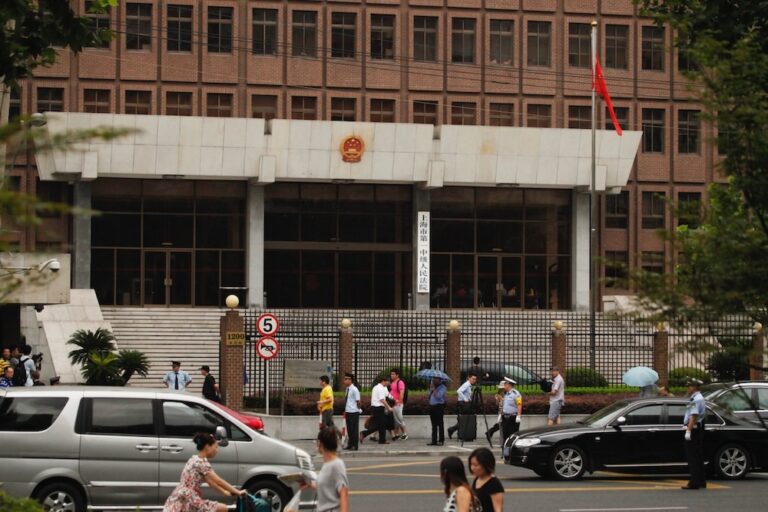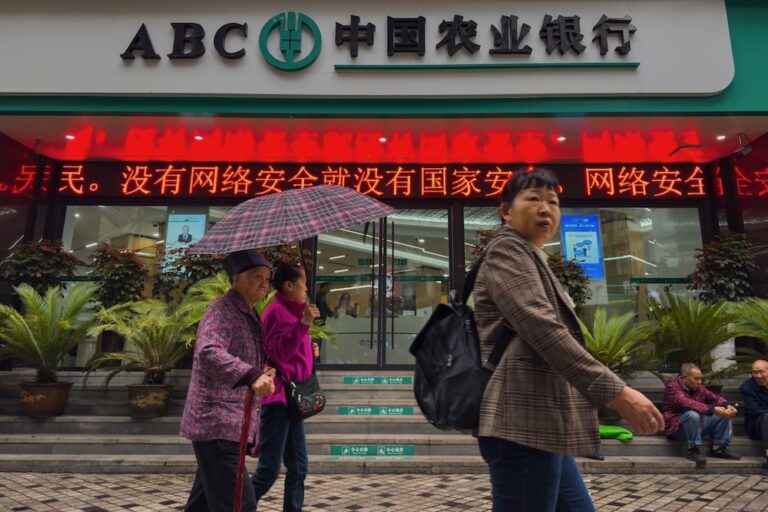(HKJA/IFEX) – On 1 March 1998, the Hong Kong Journalists Association (HKJA) called on the government to immediately provide media and public access to five major committees as part of its Campaign for Open Government. These five committees are: the Advisory Committee on the Environment, the Education Commission, the Broadcasting Authority, the Town Planning Board, […]
(HKJA/IFEX) – On 1 March 1998, the Hong Kong Journalists Association (HKJA)
called on the government to immediately provide media and public access to
five major committees as part of its Campaign for Open Government. These
five committees are: the Advisory Committee on the Environment, the
Education Commission, the Broadcasting Authority, the Town Planning Board,
and the Transport Advisory Committee. The HKJA also asked that all papers
and minutes relating to these committees be made available on the Internet.
None of these committees are legally required to be maintained in secret,
and can, according to the HKJA, be made public at any time. According to
HKJA chair Carol Lai Pui-yee, “these are just [the] ‘top five’ out of the
many government boards and committees that exclude the media and the public
from their hearings…they are [however] among the most important. We call
on the government to open these five and then continue opening dozens more.”
In 1996, the Home Affairs Bureau produced a survey indicating which
government boards and committees were open to the public and the press and
which were not. In a list of 188 advisory boards and committees, only 2
allowed for full pubic participation while a mere 17 held press briefings or
issued press releases. The HKJA asked the Home Affairs Bureau to update the
survey and explain why so little progress has been made.
Both the Housing Authority and the Hong Kong Arts Development Council
already hold open meetings, and in December the Hospital Authority voted to
follow suit. In these committees, sensitive information, such as personnel
matters or sensitive financial issues, are discussed in private. The HKJA
believe that this type of system is an effective one and demonstrate that
such committees can be made public without causing trouble. In 1996 Michael
Suen Ming-yeung, Secretary for Home Affairs at the time, had claimed in the
legislature that “logistical constraints such as the lack of suitable venue
should not be legitimate reasons for conducting meetings in camera.” The
HKJA echos this complaint, arguing that a lack of space should not be used
as an excuse for excluding the public from meetings.
Background details concerning the “top five” committees
1) Advisory Committee on the Environment
The current chair holds a press briefing after every meeting. During recent
years, the committee has become increasingly powerful and public interest in
environmental issues has risen. Open meetings would facilitate a public
understanding of environmental issues.
2) Education Commission
The current chair holds a press briefing after every meeting. Though
education has been the largest area of recurrent government expenditure over
the last five years, this committee continues to meet in camera. The HKJA
has called on Antony Leung Kam-chung, incoming chairman of this committee,
to make public access to meetings one of his first priorities.
3) Broadcasting Authority
Both the general and the sub-committee chairs brief the press after every
meeting. This committee has the power to censure media outlets, prescribe
taste, cancel licenses, and levy fines against TV and radio stations. Last
week one of its sub-committees held an open meeting on a specific subject, a
fact which proves, according to the HKJA, that open meetings are feasible
and vital, especially in the sphere of media policy.
4) Town Planning Board
This board has no real connection to either the media or public to speak of,
despite the fact that its decisions concerning zoning can affect whole areas
of Hong Kong. Its 1996 annual report was published 14 months late in
February 1998.
5) Transport Advisory Committee
The current chair briefs the media after each meeting. This week’s
controversy over the airport runway points to both the power of this
committee and the public’s interests in its policy-making strategies.


